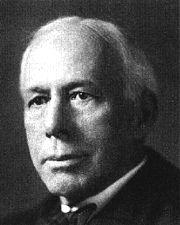- Willis Van Devanter
Infobox Judge
name = Willis Van Devanter

imagesize =
caption =
office = Associate Justice of the United States Supreme Court
termstart =January 3 1911
termend =June 2 1937
nominator =William Howard Taft
appointer =
predecessor =Edward Douglass White
successor =Hugo Black
office2 =
termstart2 =
termend2 =
nominator2 =
appointer2 =
predecessor2 =
successor2 =
birthdate = birth date|1859|4|17|mf=y
birthplace = Marion,Indiana
deathdate = death date and age|1941|02|08|1859|04|17
deathplace =Washington, D.C.
spouse = Delice BurhansWillis Van Devanter (
April 17 ,1859 -February 8 ,1941 ) was an Associate Justice of theUnited States Supreme Court ,January 3 ,1911 toJune 2 ,1937 .Born in
Marion, Indiana , he graduated from theCincinnati Law School in 1881. After three years private practice in Marion, he moved to theWyoming Territory where he served as city attorney ofCheyenne, Wyoming , a member of the territorial legislature, as chief judge of the territorial court. Upon statehood, he again took up private practice including much work for theUnion Pacific and other railroads. From 1896 to 1900 he served inWashington, D.C. as an assistant attorney general. In 1903,Theodore Roosevelt appointed him to the Eighth Circuit Court of Appeals, andWilliam Howard Taft elevated him to the Supreme Court in 1910, where he served until 1937.On the court, he made his mark in opinions on
public land s, Indian questions,water rights ,admiralty ,jurisdiction , andcorporate law , but is best remembered for his opinions defending limited government in the 1920s and 1930s. He served for over twenty-five years, [Ball, Howard. Hugo L. Black: Cold Steel Warrior. Oxford University Press. 2006. ISBN 0-19-507814-4. Page 89.] and voted against theAgricultural Adjustment Administration ("United States v. Butler "), theNational Recovery Administration ("Schechter Poultry Corp. v. United States "), federal regulation oflabor relations ("National Labor Relations Board v. Jones and Laughlin Steel Corp. "), theRailway Pension Act ("Railroad Retirement Board v. Alton Railroad "),unemployment insurance ("Steward Machine Co. v. Davis "), and theminimum wage ("West Coast Hotel v. Parrish "). For his conservatism, he was known as one of the Four Horsemen, along with Pierce Butler,James Clark McReynolds , andGeorge Sutherland ; the four would dominate the Supreme Court for over two decades. [Ball, Howard. Hugo L. Black: Cold Steel Warrior. Oxford University Press. 2006. ISBN 0-19-507814-4. Page 89.]Van Devanter had chronic
writer's block and, as a result, he wrote fewer opinions than any of his brethren, averaging three a term during his last decade on the Court. [cite book |last=Ball |first=Howard |year=1996 |title=Hugo L. Black: Cold Steel Warrior |isbn=0-19-507814-4 |publisher=Oxford University Press |location=New York |oclc=32511064 |page=89] However, he was widely respected as an expert on judicial procedure. He was largely responsible for the 1925 legislation that allowed the Supreme Court greater control over its own docket through thecertiorari procedure.Van Devanter retired as a Supreme Court Justice on May 18, 1937, [Ball, Howard. Hugo L. Black: Cold Steel Warrior. Oxford University Press. 2006. ISBN 0-19-507814-4. Page 89.] after Congress voted full pay for justices over seventy who retired.Fact|date=August 2008 There has, however, been considerable speculation that Van Devanter actually resigned due to fall-out from Roosevelt's "court-packing" attempt; cf.
Judiciary Reorganization Bill of 1937 .Fact|date=August 2008 Van Devanter was replaced by JusticeHugo Black , appointed byFranklin Delano Roosevelt . [Ball, Howard. Hugo L. Black: Cold Steel Warrior. Oxford University Press. 2006. ISBN 0-19-507814-4. Page 93.]He died in
Washington, DC , and was buried there inRock Creek Cemetery .Van Devanter's personal and judicial papers are archived at the Manuscript Division of the
Library of Congress , where they are available for research.References
Wikimedia Foundation. 2010.
